Technology is always changing. Tell a software engineer this, and they might roll their eyes. In a field that moves incredibly quickly, this concept is no enigma. It’s readily apparent. What is not, however, is how a person goes from not a day of formal education in the field to a core contributor working on a number of advanced blockchain projects. From once “not liking computers” to easily spending 60 hours per week programming—and loving every moment of it.
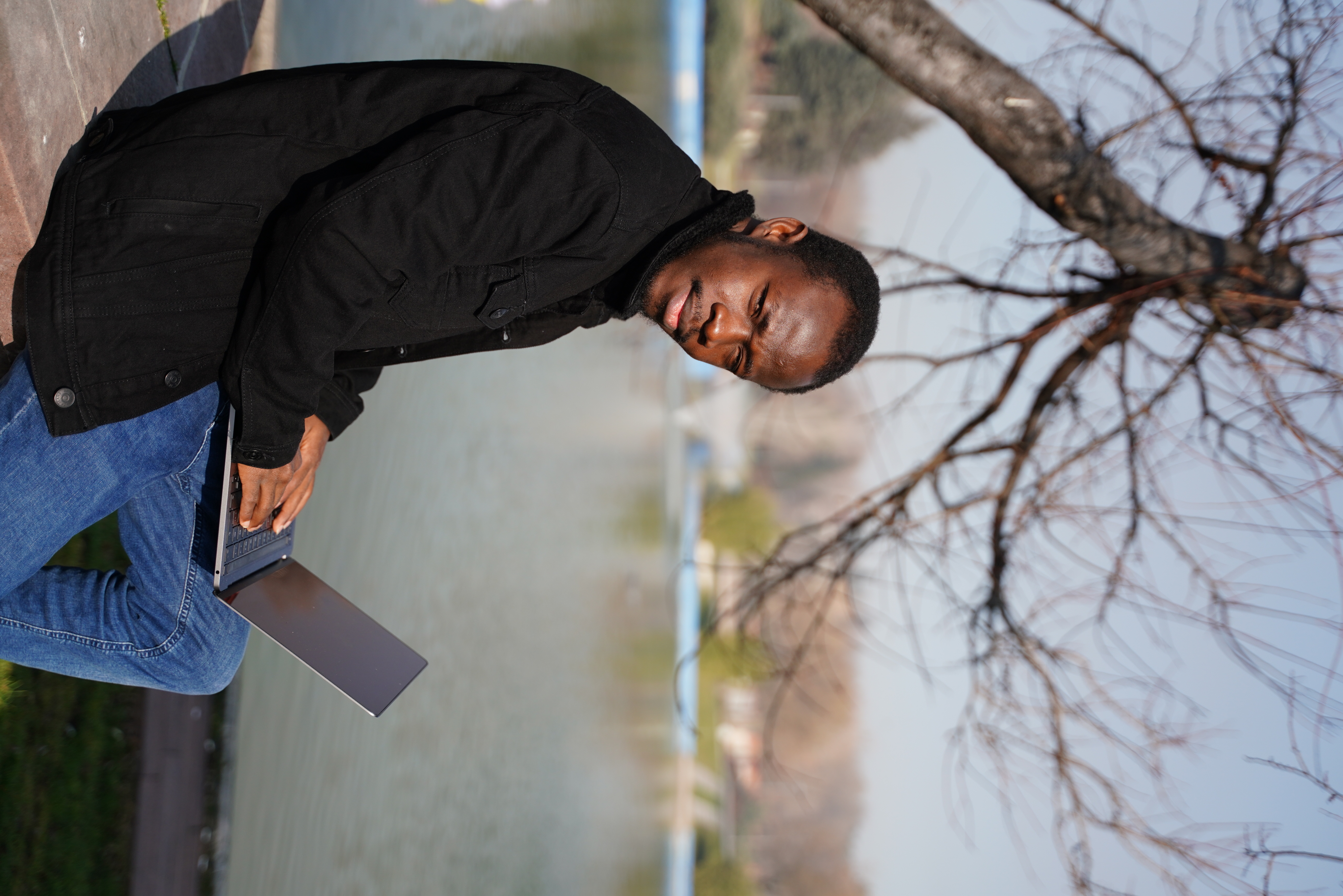 Bashiru working on code
Bashiru working on code
For Dabble Lab member, Bashiru Bukari, the answer is obvious: learning. “Everyday I code; everyday I learn.” Yes, he wants to keep himself up-to-date, to learn “...what is going on in the tech world, new technology, new tech coming up, the technology we are using.”
And learn he certainly has.
A dabbler since March of this year, Bashiru regularly tracks 40 hours per week but admits to spending closer to 60 hours online. With a setup in his bedroom, his commute to work is short—bed-to-desk short. His day often begins with coding, and ends around 12am, with yes, more coding. His flatmates, two pharmacy students at the same university, leave early for class. “That’s perfect,” he says. He has the place to himself to concentrate. His base model MacBook Pro and 27-inch monitor are often split-screen, with blockchain, and lately, Golang, filling his screens. While much of the tracked time—approximately 13 hours—per week is spent learning, he knows there is a give-and-take. “Sometimes there are priorities to focus on, but [with] some of those priorities, if you don't learn, you cannot do them.”
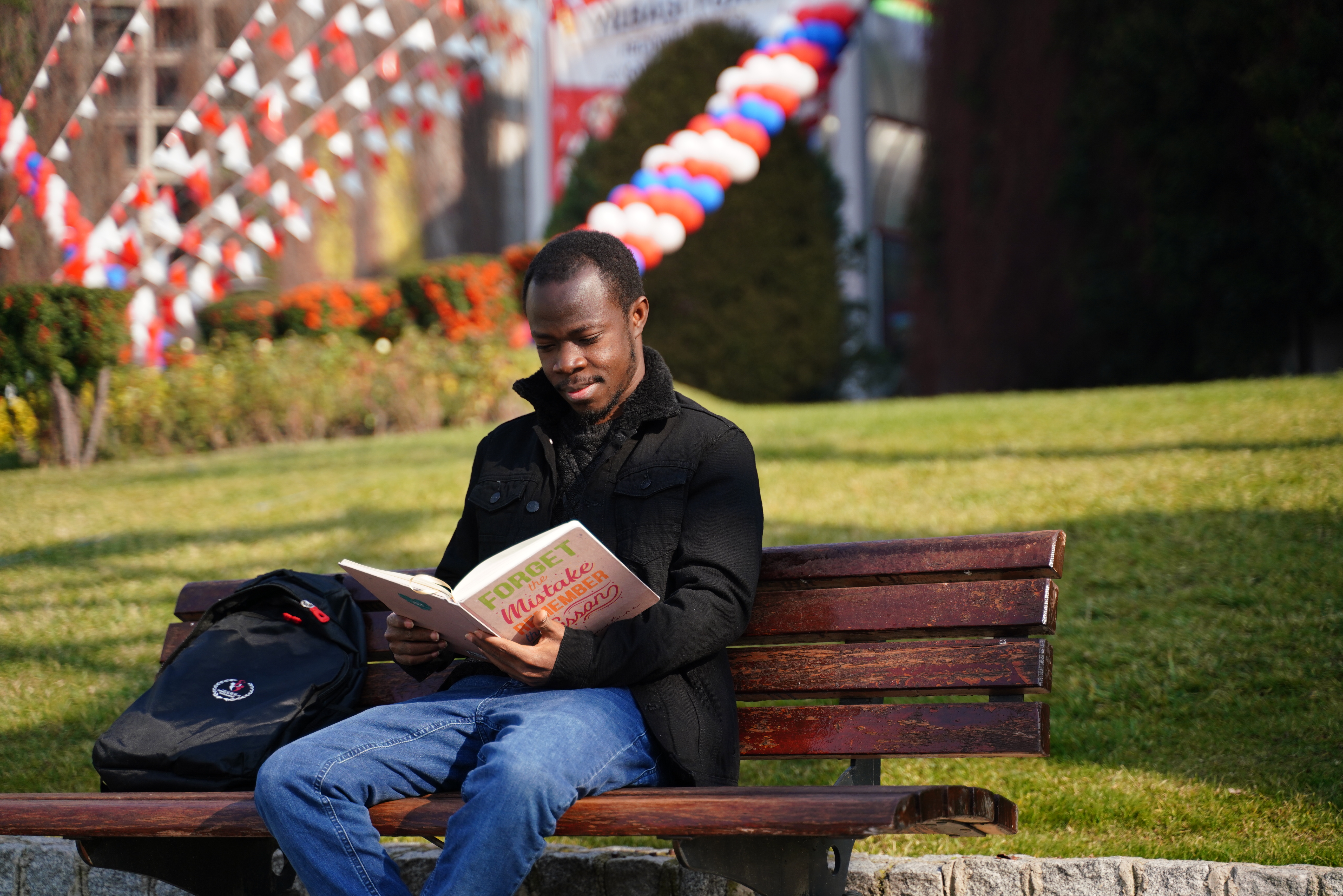 The pursuit of knowledge is a core part of Bashiru’s life
The pursuit of knowledge is a core part of Bashiru’s life
Priorities these days revolve around his dedicated projects. He has two, both internal to the collective. The first, derived from a script he built nearly on his own alongside Steve, is an in-progress blockchain tool. It improves the handling of nodes launched from the Pocket Network, including making changes to nodes (e.g., location), handling more nodes on one machine load, as well as modifying credentials from the user interface and setting up certificates. In due time, it will be merged with the second project—Node Auditor. Here, he collaborates with team member and project lead, Mark Hovsepyan, with the goal being to effectively fetch the blockchain data (i.e., the nodes derived from the Pocket Network UI) and analyze it. Between the three dabblers and the two interrelated projects, the goal is simple: create a complete SaaS product which allows multiple users to simultaneously and securely migrate, as Bashiru continues to explain, “...10,000, 20,000 nodes at one time… [loading] them to any country the user wants, whether to Germany, to America, whatsoever.” Simply put, “creating a real-time analysis in one tool.”
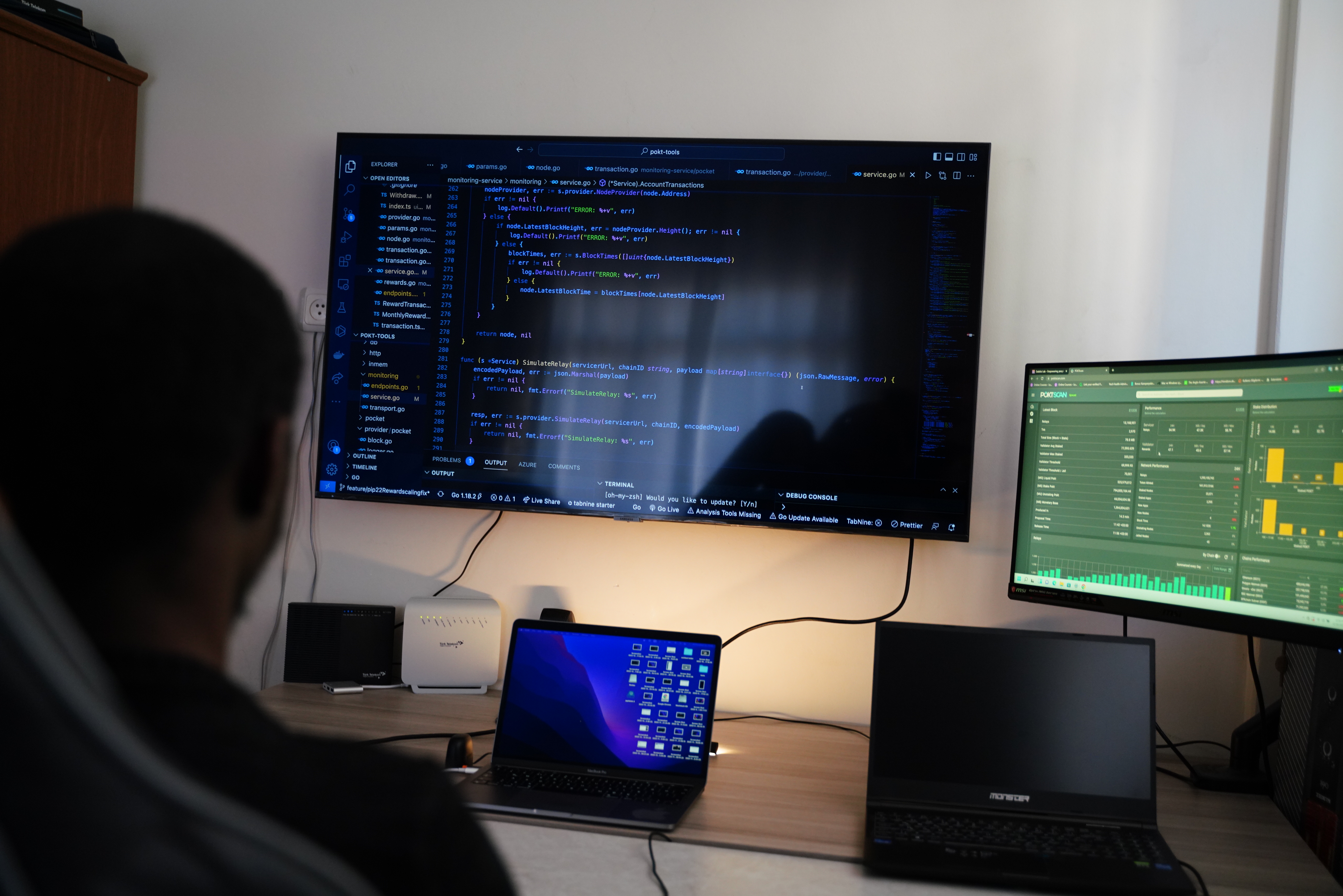 Bashiru at his desk at home
Bashiru at his desk at home
Recalling his early days at the collective, Bashiru started doing smaller projects, noting his mindset at the time was simply, “wherever [Dabble Lab] needs me, I will deliver.” Nowadays, that approach helps progress the blockchain projects he’s working on, including its current performance issues. “We have to cope with changes everyday, how the nodes are performing… I mean, there are a lot of things to keep track of.” The team continues to optimize Node Auditor and increase its scalability so that it can better handle multiple users at one time. As he and Mark work on user interface changes, they wait for the Pocket Network to make a major release of nodes so that they can make further adjustments, such as improving security on the nodes and addressing some credential issues. Bashiru might be asked to make changes to a live node or to the setup or certificate. Herein lies evidence of his innate attention-to-detail. “I don't just jump in and make changes,” he adds, chuckling, “this is software—you can screw everything up.” By creating his own personal server, he is able to test fixes in a safe, production environment before implementing them live. “Using my own demo [allows] making sure it doesn’t cause any problems… and it’s 100% working before I make changes.”
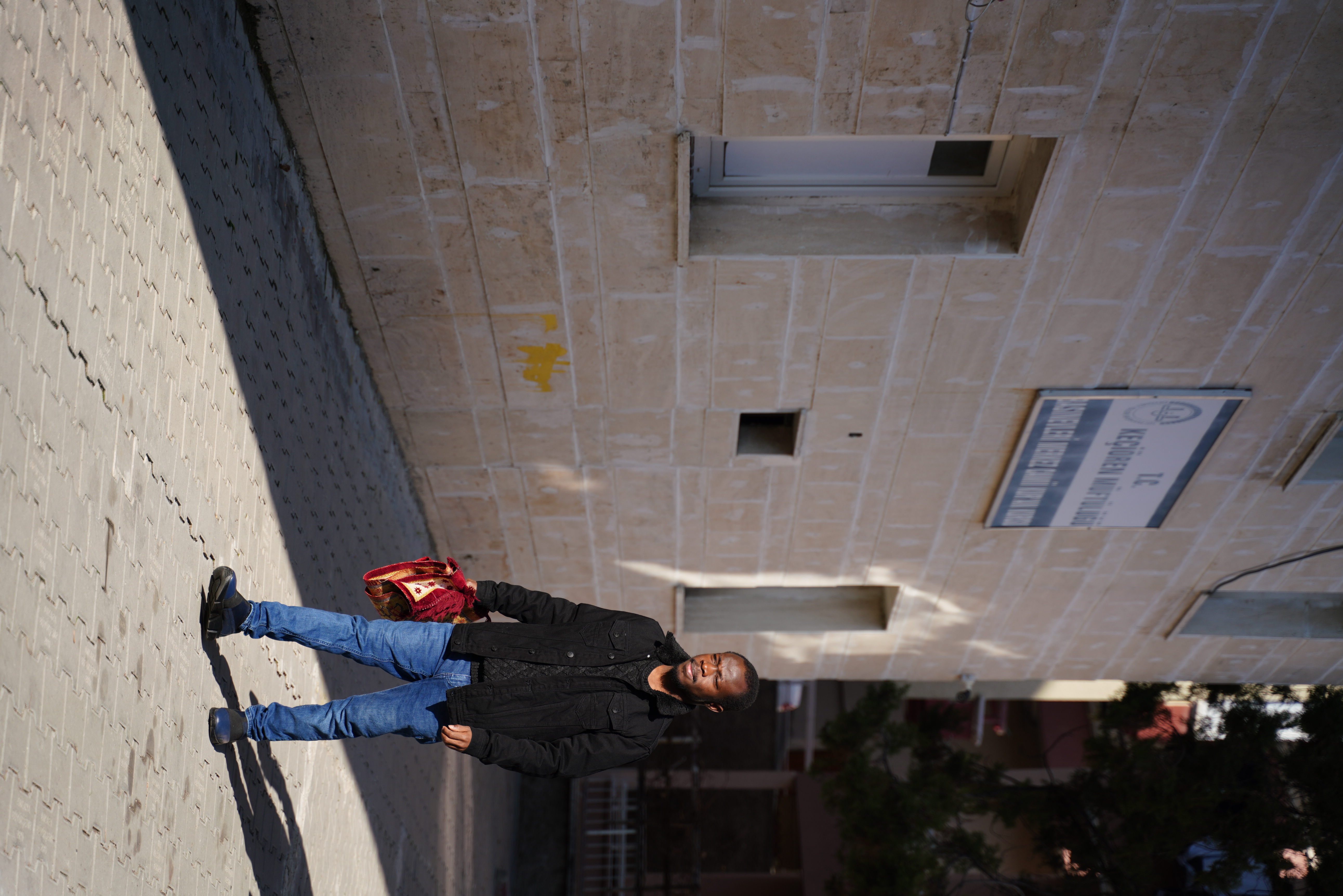 Bashiru walking through his new city
Bashiru walking through his new city
Any person hearing this budding software engineer speak of his work—and the zealous inflection interwoven throughout—may be surprised to hear the uncertain (yet certainly askew) path taken to arrive at this point. Born and raised in the rural northern city of Bawku, Ghana, Bashiru went to live with his grandmother at age 6 after his mother moved south. In high school, like many of his classmates, he focused on good grades to apply for med school but didn’t get in. Intensive research in his gap year thereafter resulted in his decision to pursue chemical engineering. With university options in Ghana or Turkey, he chose the latter. He moved from his home country in 2018 and has been studying for his bachelor’s in Ankara ever since.
“If you say something is highly impossible, I will try to make it possible. All I am fighting for is doing the best as much as I can, becoming better in what I love doing—especially software and technology. I just never give up.”
It wasn’t long after the move that Bashiru found himself questioning career options in his chosen field of study, and he decided to get to know software engineering. “I barely knew how to copy and paste at the time,” he laughs. But he approached the challenge just like he does in his work today—with tenacity. “Most of the computer science and engineering students were telling me, ‘software engineering is too hard to do.’” Despite his initial designs looking “wretched” and nearly quitting programming three separate occasions, he continued his self-motivated, informal education. At this point, it becomes easy to make out his character, one of an unwavering “can-do” spirit. “If you say something is highly impossible, I will try to make it possible. All I am fighting for is doing the best as much as I can, becoming better in what I love doing—especially software and technology. I just never give up.”
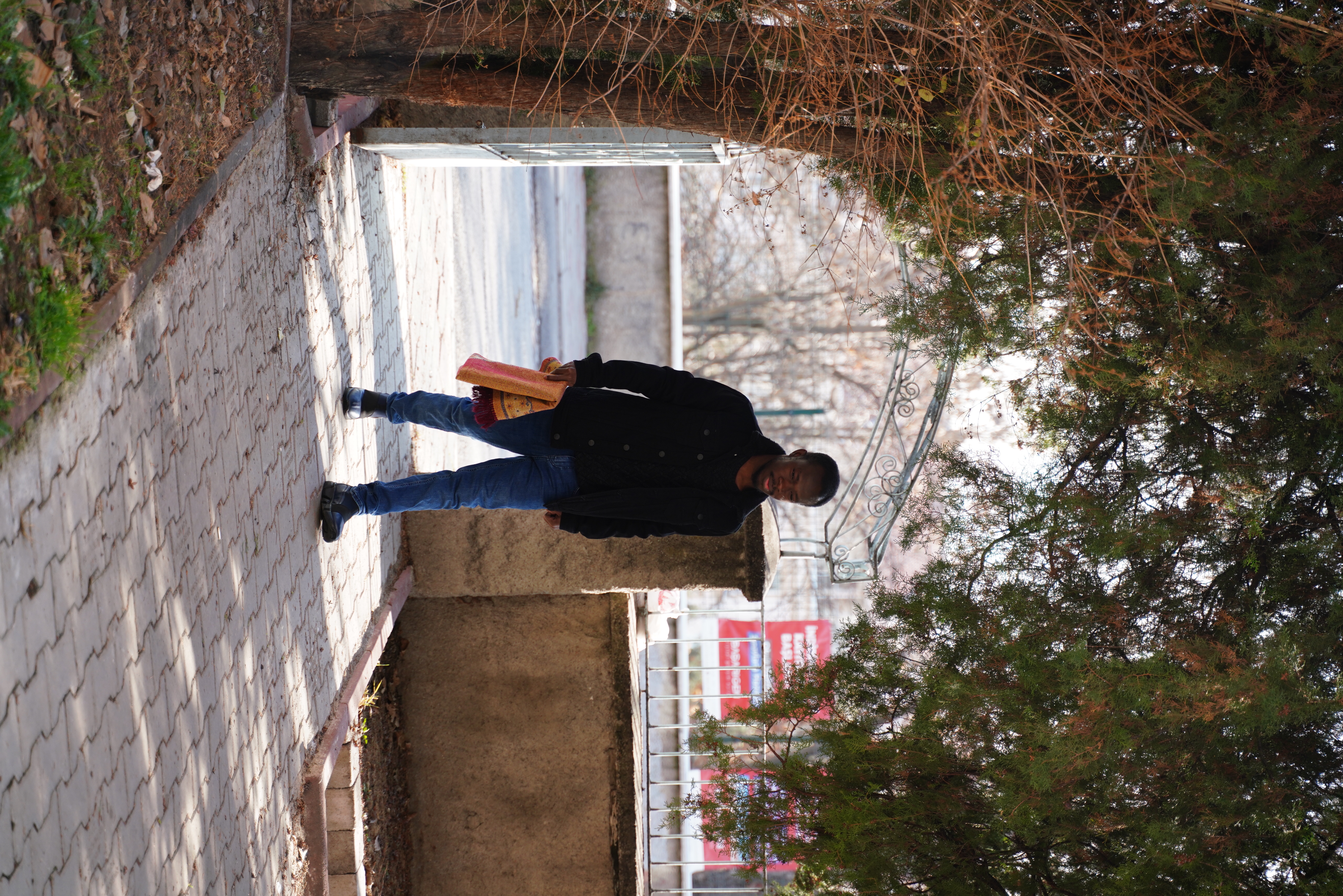 Dabbler, Bashiru Bukari
Dabbler, Bashiru Bukari
Give up he certainly did not. Following two years of deep learning, he was ready to put his abilities to the test in industry. Originally choosing Dabble Lab for its remote set-up and its US-based hours which complement his night owl tendencies, he came to realize the fit ran deeper. “I like the way ownership is here. I have to figure things out on my own,” he says, further appreciating the intellectual freedom and adding, “I really love that I have the freedom to work on what I love and what is interesting.” Conversations are collaborative, and Bashiru enjoys the ability to come with ideas and the open dialogue. He sees his work at the collective likewise as “an opportunity to experiment on different technologies,” sensing a much richer learning experience now as a dabbler compared to prior times when learning felt more “minimalistic” when there wasn’t a place to apply it. Most importantly, however, the collective supports his personal development. “It is not like you are only working for Dabble Lab. You are working for yourself. The collective is also improving you, making you a better person, so, yeah, I look at it as [my work] is also for my own betterment.”
“It is not like you are only working for Dabble Lab. You are working for yourself. The collective is also improving you, making you a better person, so, yeah, I look at it as [my work] is also for my own betterment.”
This fervency for development is one shared across the Dabble Lab team. Birds of a feather may flock together, yet Bashiru sees the collective’s founder as the inspiration. “Steve has opened my eyes to so many areas…and [he] still learns a lot. He is still writing scripts and coding.” After Steve told him that 30 years in, most of his friends are not still coding like he is, Bashiru meaningfully considers his own longevity. “How can I optimize myself in a way such that I am continuing to be consistent, to not burn out, to not get to the stage where I don’t want to do this anymore? I am always thinking about this.”
 Bashiru at a market in his new city, Ankara, Turkey
Bashiru at a market in his new city, Ankara, Turkey
What else is he thinking about? Between actively following his favorite football (soccer) league (Bayern Munich) and playing a bit of the sport himself, exploring sites around his adopted country (most recently, the Black Sea), and oh, pursuing his final year of chemical engineering, it comes as no surprise he’s often asked, “when do you sleep?” But perhaps he leads a life indicative of the field he’s grown to love, where the only constant is change. Where the pace is fast-moving, and the need for nimble versatility, strong. Knowing Bashiru, it is clear he is in the perfect place to thrive. And if he’s not? Well, for him, that answer is obvious—learn.
Published
Text by Erica Bettac
Photography by None
Dabbler, Bashiru Bukari.
